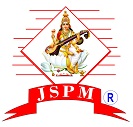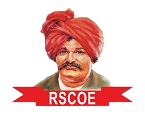PO/PSO
Under Graduate Program
Program Outcomes (POs)
Engineering Graduates will be able to:
1. Engineering knowledge: Apply the knowledge of mathematics, science, engineering fundamentals, and an engineering specialization to the solution of complex engineering problems.
2. Problem analysis: Identify, formulate, review research literature, and analyze complex engineering problems reaching substantiated conclusions using first principles of mathematics, natural sciences, and engineering sciences.
3. Design/development of solutions: Design solutions for complex engineering problems and design system components or processes that meet the specified needs with appropriate consideration for the public health and safety, and the cultural, societal, and environmental considerations.
4. Conduct investigations of complex problems: Use research-based knowledge and research methods including design of experiments, analysis and interpretation of data, and synthesis of the information to provide valid conclusions.
5. Modern tool usage: Create, select, and apply appropriate techniques, resources, and modern engineering and IT tools including prediction and modeling to complex engineering activities with an understanding of the limitations.
6. The engineer and society: Apply reasoning informed by the contextual knowledge to assess societal, health, safety, legal and cultural issues and the consequent responsibilities relevant to the professional engineering practice.
7. Environment and sustainability: Understand the impact of the professional engineering solutions in societal and environmental contexts, and demonstrate the knowledge of, and need for sustainable development.
8. Ethics: Apply ethical principles and commit to professional ethics and responsibilities and norms of the engineering practice.
9. Individual and team work: Function effectively as an individual, and as a member or leader in diverse teams, and in multidisciplinary settings.
10. Communication: Communicate effectively on complex engineering activities with the engineering community and with society at large, such as, being able to comprehend and write effective reports and design documentation, make effective presentations, and give and receive clear instructions.
11. Project management and finance: Demonstrate knowledge and understanding of engineering and management principles and apply these to one’s own work, as a member and leader in a team, to manage projects and in multidisciplinary environments.
12. Life-long learning: Recognize the need for, and have the preparation and ability to engage in independent and life-long learning in the broadest context of technological change.
Programme Specific Outcomes (PSOs)
A graduate of the Civil Engineering Program will demonstrate:
PSO1: Graduates will be able to plan, analyze, design, and maintain Civil Engineering structures by integrating contemporary technologies, digital tools, and interdisciplinary knowledge in alignment with industry and societal needs.
PSO2: Graduates will be able to identify, formulate, and address complex infrastructure challenges by applying engineering principles, management strategies, and innovative practices.
PSO3: Graduates will be able to develop sustainable and inclusive engineering solutions for environmental and water resource challenges, with a focus on ethical responsibility and long-term societal impact.
Program Outcomes (POs) (2024)
Engineering Graduates will be able to:
PO1: Engineering Knowledge: Apply knowledge of mathematics, natural science, computing, engineering fundamentals and an engineering specialization as specified in WK1 to WK4 respectively to develop solutions for complex engineering problems.
PO2: Problem Analysis: Identify, formulate, review research literature and analyze complex engineering problems reaching substantiated conclusions with consideration for sustainable development. (WK1 to WK4)
PO3: Design/Development of Solutions: Design creative solutions for complex engineering problems and design/develop systems, components, and processes to meet identified needs with consideration for public health and safety, whole-life cost, net zero carbon, culture, society, and environment as required. (WK5)
PO4: Conduct Investigations of Complex Problems: Conduct investigations of complex engineering problems using research-based knowledge including design of experiments, modelling, analysis, and interpretation of data to provide valid conclusions. (WK8)
PO5: Engineering Tool Usage: Create, select, and apply appropriate techniques, resources, and modern engineering and IT tools, including prediction and modelling, recognizing their limitations to solve complex engineering problems. (WK2 and WK6)
PO6: The Engineer and The World: Analyze and evaluate societal and environmental aspects while solving complex engineering problems for their impact on sustainability with reference to economy, health, safety, legal framework, culture, and environment. (WK1, WK5, and WK7)
PO7: Ethics: Apply ethical principles and commit to professional ethics, human values, diversity, and inclusion; adhere to national and international laws. (WK9)
PO8: Individual and Collaborative Team Work: Function effectively as an individual, and as a member or leader in diverse and multidisciplinary teams.
PO9: Communication: Communicate effectively and inclusively within the engineering community and society at large, such as being able to comprehend and write effective reports and design documentation, make effective presentations considering cultural, language, and learning differences.
PO10: Project Management and Finance: Apply knowledge and understanding of engineering management principles and economic decision-making and apply these to one’s own work, as a member and leader in a team, and to manage projects and in multidisciplinary environments.
PO11: Life-Long Learning: Recognize the need for, and have the preparation and ability for (i) independent and life-long learning, (ii) adaptability to new and emerging technologies, and (iii) critical thinking in the broadest context of technological change. (WK8)
Programme Specific Outcomes (PSOs)
PSO1: Graduates will be able to plan, analyze, design, and maintain Civil Engineering structures by integrating contemporary technologies, digital tools, and interdisciplinary knowledge in alignment with industry and societal needs.
PSO2: Graduates will be able to identify, formulate, and address complex infrastructure challenges by applying engineering principles, management strategies, and innovative practices.
PSO3: Graduates will be able to develop sustainable and inclusive engineering solutions for environmental and water resource challenges, with a focus on ethical responsibility and long-term societal impact.
Post Graduate Program Program Outcomes (POs)
Engineering Post Graduates will be able to:
PO1: Independently carry out research, investigation, and development work to solve practical problems.
PO2: Write and present a substantial technical report or document.
PO3: Demonstrate a degree of mastery over the area of specialization of the program, at a level higher than the requirements of the corresponding undergraduate program.
PO4: Acknowledge the responsibility to contribute towards the sustainable development of society.
PO5: Engage in lifelong learning while upholding professional ethics and practices.

